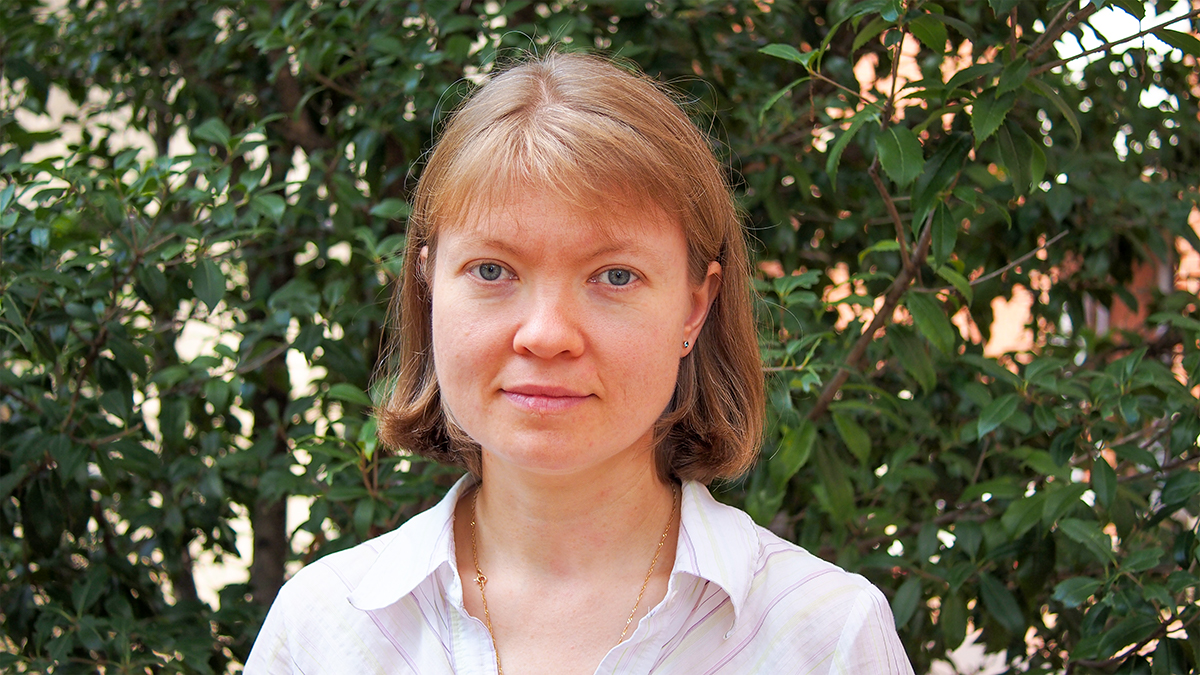
- This event has passed.
Anna Stepanova – Building a synbio toolbox to monitor and control plant hormone activity | GES Colloquium (Zoom)
November 10, 2020 @ 12:00 pm - 1:00 pm

GES Colloquium Home | Zoom Registration | GES MediaSite | Video Archives | Podcast | @GESCenterNCSU | Newsletter
Building a synbio toolbox to monitor and control plant hormone activity
Speaker: Anna N. Stepanova, PhD, Associate Professor of Plant and Microbial Biology at NC State
Website | Email | Twitter @AlonsoStepanova and @ANStepanova45
Dr. Stepanova will talk about her group’s efforts to harness the power of synthetic biology and develop new molecular tools to visualize the activity of plant hormones and gain tighter control over spatiotemporal patterns of gene expression.
Note: Colloquium will be held via Zoom until the university resumes normal operations. Click Register/Join button at the bottom of this page for Zoom link. See Virtual Colloquium: Zoom Instructions for Zoom information.
Abstract
Phytohormones are critical regulators of plant development and environmental responses. In the past three decades, the molecular pathways that govern hormone biosynthesis, signaling, and catabolism have been largely mapped out using a combination of genetics, molecular biology, biochemistry, and cell biology approaches. Despite the major progress, our ability to monitor and precisely control hormone action remains limited. With the development of inexpensive DNA synthesis technologies and the rise of synthetic biology as a new discipline at the intersection of molecular genetics and engineering, new molecular tools can now be built to enable hormone tracking and targeted hormone manipulation. We have generated a synthetic biology toolbox that allows rapid construction of multi-hormone transcriptional reporters. In addition, we are building CRISPR-based logic gate devices to confer novel, highly restricted patterns of expression to any genes of interest using a limited set of available native and synthetic drivers. The latter technology can be employed to tune the expression levels and subtract undesired domains of expression from existing drivers to precisely control output genes of interest, such as hormone biosynthesis, signaling, or catabolism genes, to regulate plant architecture, responses to stress, and other traits of interest. By combining multi-hormone reporters and genetic logic devices, we aim to shed fresh light on the mechanistic role of hormones in orchestrating plant development and stress physiology. That knowledge can then be relied upon to develop resilient next-generation crops.
Speaker Bio
Anna Stepanova received her undergraduate training at the University of Nevada, Reno and Lobachevsky State University of Nizhni Novgorod, Russia. She did her graduate work in the laboratory of Joseph Ecker, earning her PhD degree in Biology from UPenn for the study of nuclear events in ethylene signaling. For her postdoctoral training, Anna worked with Jose Alonso at North Carolina State University exploring the crosstalk between ethylene and auxin. She is currently an Associate Professor of Plant Biology and Genetics at NC State University. Her primary research interests continue to center around plant hormones, specifically the mechanisms of ethylene signal transduction, auxin biosynthesis, hormone pathways’ crosstalk, and translational regulation of hormone responses. In her work, Anna is employing classical and molecular genetics, genomics and synthetic biology in Arabidopsis and tomato to decipher the mechanisms governing plant adaptation and phenotypic plasticity.